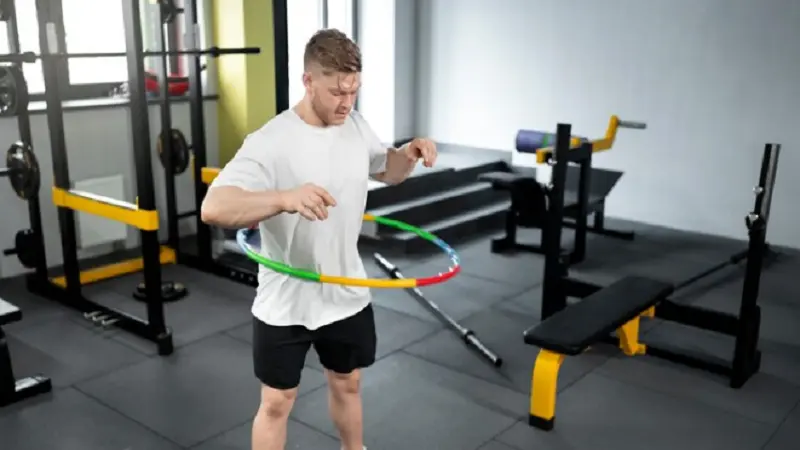Maintaining physical fitness is a goal for many, but what happens when exercise isn’t an option? Whether due to injury, illness, or a packed schedule, staying fit without traditional exercise can seem daunting. However, there are several ways to keep your body healthy and active, even when conventional workouts aren’t feasible. This guide by How To Stay Fit When You Can’t Exercise Twspoondietary offers practical tips and insights into staying fit without exercise, ensuring you maintain your health and well-being.
Understanding the Challenge
Before diving into strategies, it’s important to understand why exercise is often seen as the cornerstone of fitness. Regular physical activity helps:
- Improve cardiovascular health
- Build and maintain muscle mass
- Enhance flexibility and mobility
- Boost mental health and mood
- Support metabolic health and weight management
When exercise is off the table, these benefits may seem out of reach. However, fitness is multifaceted, and there are alternative approaches to achieve similar outcomes How To Stay Fit When You Can’t Exercise Twspoondietary.
1. Prioritize Nutrition
Nutrition is the foundation of fitness, and when you can’t exercise, it becomes even more crucial. Here’s how you can optimize your diet:
a. Balanced Diet
Focus on a balanced diet that includes a variety of nutrients. Ensure you consume:
- Lean proteins: Chicken, fish, tofu, and legumes help maintain muscle mass.
- Healthy fats: Avocados, nuts, and olive oil support overall health.
- Complex carbohydrates: Whole grains, fruits, and vegetables provide sustained energy.
- Fiber: Aids digestion and keeps you full longer, helping with weight management.
- Vitamins and minerals: Ensure you’re getting enough micronutrients through a varied diet or supplements if necessary.
b. Portion Control
Without exercise, your calorie expenditure decreases. It’s essential to adjust your portion sizes to prevent weight gain. Eating mindfully, listening to hunger cues, and avoiding overeating can help maintain your fitness level.
c. Hydration
Staying hydrated is key to overall health. Water supports digestion, nutrient absorption, and energy levels. Aim to drink at least 8 glasses of water a day, more if you’re in a hot climate or feeling unwell How To Stay Fit When You Can’t Exercise Twspoondietary.
2. Focus on Flexibility and Mobility
Even if you can’t engage in rigorous exercise, gentle movements can help maintain flexibility and mobility, which are crucial for long-term fitness.
a. Stretching
Daily stretching routines can improve your flexibility and reduce the risk of injury. Focus on areas that may become tight from inactivity, such as the hamstrings, lower back, and shoulders. How To Stay Fit When You Can’t Exercise Twspoondietary
b. Yoga and Pilates
These low-impact activities can be done at various intensity levels, making them suitable even if you have limitations. They improve flexibility, strengthen muscles, and enhance balance without straining the body. How To Stay Fit When You Can’t Exercise Twspoondietary
c. Light Activity
Incorporate light activities into your day, such as walking around your home, doing household chores, or even gentle dancing. Every bit of movement counts and helps keep your body active.
3. Optimize Mental Health
Mental well-being plays a significant role in physical health. When you can’t exercise, focusing on mental health becomes even more important.
a. Mindfulness and Meditation
Practicing mindfulness and meditation can reduce stress, improve mood, and enhance overall well-being. These practices are particularly beneficial when you’re unable to engage in physical activities.
b. Stay Connected
Social connections are vital for mental health. Engage in conversations with friends and family, join online communities, or participate in virtual social events to stay connected and reduce feelings of isolation.
c. Mental Exercises
Keep your mind sharp with mental exercises such as puzzles, reading, or learning a new skill. Mental fitness contributes to overall health and helps you stay engaged and motivated.
4. Sleep and Rest
Adequate sleep and rest are essential components of fitness. When you can’t exercise, your body requires quality rest to repair and maintain its functions.
a. Prioritize Sleep
Aim for 7-9 hours of sleep per night. Establish a bedtime routine that includes winding down, avoiding screens before bed, and creating a comfortable sleep environment.
b. Rest Days
Even if you can’t exercise, it’s important to recognize the value of rest. Give your body the time it needs to heal and recover, especially if you’re dealing with an injury or illness.
5. Manage Your Weight
Maintaining a healthy weight is possible without exercise, though it requires a more focused approach to diet and lifestyle.
a. Monitor Calorie Intake
Keep track of your calorie intake to ensure you’re not consuming more than your body needs. This can be done through mindful eating, portion control, and choosing nutrient-dense foods.
b. Healthy Snacking
Opt for healthy snacks like fruits, nuts, and yogurt to curb hunger without adding excessive calories. Avoid processed snacks that are high in sugar and unhealthy fats.
c. Regular Check-Ins
Weigh yourself regularly and monitor your body composition to ensure you’re maintaining a healthy weight. If you notice any significant changes, adjust your diet and lifestyle accordingly.
6. Incorporate Alternative Therapies
Alternative therapies can complement your efforts to stay fit without exercise. These therapies may provide physical and mental benefits that support your overall fitness.
a. Massage Therapy
Regular massages can help reduce muscle tension, improve circulation, and promote relaxation. This can be particularly beneficial if you’re unable to exercise due to injury.
b. Acupuncture
Acupuncture is known to promote healing and reduce pain. It may help you manage any physical discomfort and improve your overall sense of well-being.
c. Aromatherapy
Using essential oils for aromatherapy can enhance your mood, reduce stress, and improve sleep quality. Consider using lavender for relaxation, peppermint for energy, and eucalyptus for respiratory support.
7. Engage in Creative Outlets
Finding creative outlets can be a great way to stay mentally and emotionally fit when you can’t exercise. Engaging in hobbies and activities you enjoy can keep your mind active and reduce stress.
a. Art and Craft
Drawing, painting, or engaging in crafts can be therapeutic and fulfilling. It allows you to express yourself creatively and stay mentally engaged.
b. Music and Dance
Even if you can’t perform strenuous exercise, listening to music or engaging in light dance movements can lift your spirits and keep you active.
c. Writing and Journaling
Writing down your thoughts, goals, and feelings can be a powerful way to stay mentally and emotionally fit. Journaling helps you process emotions and reflect on your progress. How To Stay Fit When You Can’t Exercise Twspoondietary
8. Adapt and Adjust
Staying fit without exercise requires flexibility in your approach. Be willing to adapt and adjust your routine as needed, based on your current abilities and health.
a. Set Realistic Goals
Set achievable goals that align with your current capabilities. Focus on what you can do rather than what you can’t. Celebrate small victories and progress.
b. Stay Informed
Keep yourself informed about your health condition and the best practices for managing it. This may involve consulting with healthcare professionals or researching alternative methods to stay fit.
c. Be Patient
Understand that staying fit without exercise may take time and patience. Be kind to yourself and recognize that every effort counts toward your overall well-being.
Conclusion
Staying fit when you can’t exercise is challenging, but it’s far from impossible. You can maintain your fitness level and overall health by focusing on nutrition, mental health, flexibility, and alternative therapies. Remember, fitness is not just about physical activity; it’s about taking care of your body and mind holistically. With the right approach, you can stay fit and healthy, even without traditional exercise.
How To Stay Fit When You Can’t Exercise Twspoondietary is dedicated to helping you navigate these challenges with practical advice and support. Whether temporarily sidelined or looking for alternative ways to stay fit, this guide provides the tools you need to succeed.




